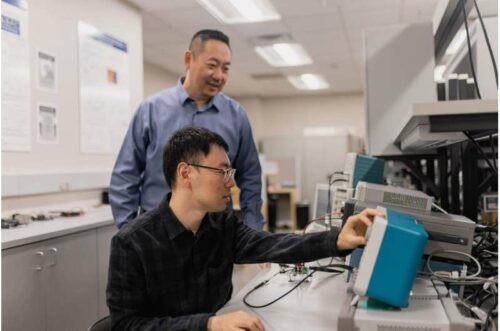This promises to prevent EMI-induced malfunctions, enhance EV safety, and potentially revolutionise electronic devices beyond automobiles and is poised to make EVs safer and more efficient.

Researchers at the University of Texas at Dallas have introduced a technology designed to identify and mitigate electromagnetic interference (EMI) in electric vehicles (EVs). EMI, often caused by the intricate web of electrical components within EVs, can disrupt communication between these components, potentially leading to critical malfunctions, including navigation errors and compromised collision-avoidance systems.
The team’s technology, an intelligent sensor, not only detects EMI but also implements measures to minimise its impact. Currently, EV manufacturers incorporate EMI-blocking components and conduct tests to ensure EMI levels meet varying country-specific standards. However, EMI is dynamic, making it challenging for drivers to identify malfunctions in real time. The newly developed sensor has the potential to be integrated into the electronics of future electric, gas-powered, or hybrid vehicles, as well as other electronic devices like smartphones and laptops. Electric vehicles are particularly susceptible to EMI due to their high voltage requirements and densely packed electrical components.
The researchers mentioned that the abundance of computer chips in EVs can generate electromagnetic interference. To combat this issue, this technology monitors conditions such as input voltage and load current, indicators of increased EMI in power circuits. Upon detection, the system applies on-chip countermeasures to mitigate EMI, ensuring smooth operation. They likened it to a medical test for elevated blood glucose levels, as it identifies precursors to EMI in specific parameters. This approach aims to enhance the safety and efficiency of EVs by preventing EMI generated within the vehicle’s circuits from affecting nearby systems. The researchers expressed their aspiration for the technology to offer a cost-effective solution, ultimately making EVs safer and more reliable.






